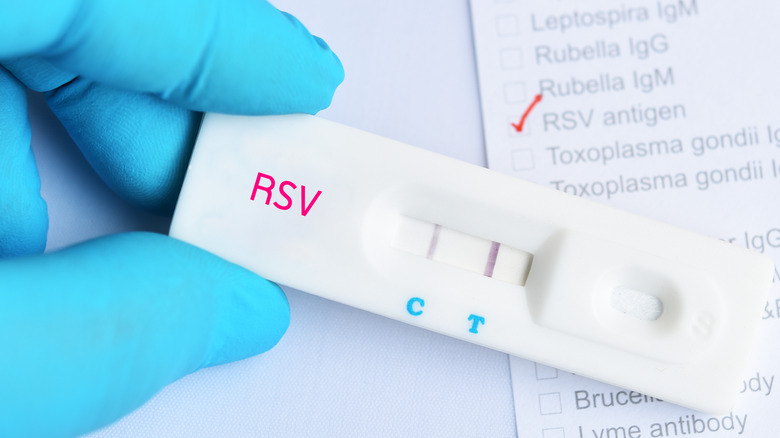Key Medication Shortages Fuel Worries For Kids This Upcoming Virus Season
The U.S. is currently experiencing a shortage of key medications used to treat common illnesses in children, sparking concern ahead of this year's upcoming virus season. This comes amid a nationwide Adderall shortage impacting kids with ADHD around the country (via NBC 5). According to CNN, pharmacists and public health experts have reported a shortage of medications used to treat ear infections, sore throats, and the flu, among others. "Right now, we are having severe shortages of medications. There's no Tamiflu for children. There's barely any Tamiflu for adults. And this is brand-name and generic," Renae Kraft, a relief pharmacist in Oklahoma City, told CNN.
"As far as antibiotics go, there's not a whole lot." As a result, some parents are having a hard time trying to track down these medications. In addition to Tamiflu, first-line antibiotics like amoxicillin and Augmentin, as well as Albuterol inhalers, have been scarce. According to Kraft, around 20 different people walked into the pharmacy she works at on Monday, asking her to fill prescriptions for medications the pharmacy had run out of. Canada is also facing a similar shortage
What's causing the medication shortage?
As it turns out, increased demand for certain medications ahead of the upcoming virus season may be to blame. According to the Centers for Disease Control and Prevention (CDC), many states have either high or very high respiratory virus activity (per CNN). While much of this is due to the flu, respiratory syncytial virus (RSV) is also on the rise. In fact, about 20% of tests for RSV in the U.S. were positive the week of November 13 (via New York Post).
As a result, the demand for Tamiflu has increased exponentially, according to GoodRx. In addition, the demand for antibiotics, like amoxicillin, has also increased. Experts at Live Science say this may be attributed to the surge in RSV infections. While antibiotics can't kill viruses, they are sometimes inappropriately or preemptively prescribed to children for viral infections, despite being largely ineffective. Another possible explanation is that RSV can sometimes cause secondary bacterial infections, which can be treated with antibiotics.


